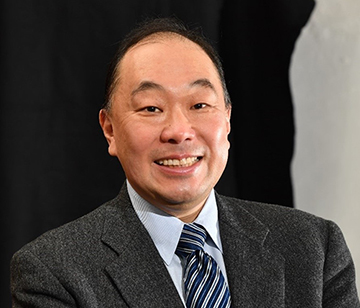
The Group of Seven (G7) Hiroshima Summit held in May garnered global attention with Ukrainian President Zelenskyy in attendance. However, the summit did not provide a concrete path toward the "world without nuclear weapons" that was Prime Minister Fumio Kishida's goal, leaving mixed opinions on the outcome. Then, what was the significance of holding this summit? We asked Professor MINOHARA Toshihiro-a specialist in Japan-US relations, international politics, and national security at the Graduate School of Law at Kobe University-about the summit's background and outcomes, including the future of the world after the summit.
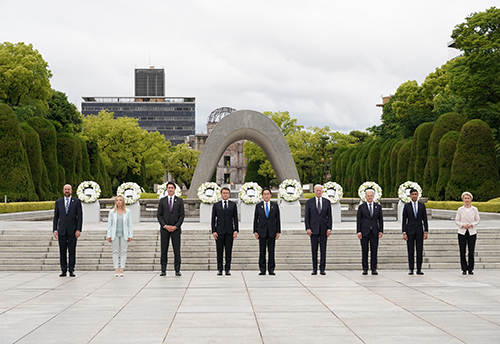
The G7 summit was held in Hiroshima, the site of an atomic bombing. Looking back, what were your impressions of the summit?
Professor MINOHARA: My first impression was that there was a twist. As a politician elected in Hiroshima, Prime Minister Kishida expressed his vision of a world without nuclear weapons. However, Japan is under the protection of the US nuclear umbrella. As long as Japan relies on the superpower's protection in case of an emergency, his appeal for nuclear disarmament to other countries lacks persuasiveness.
I also noticed various other twists. In a speech to the US Congress last year, Ukrainian President Zelenskyy compared the Russian invasion to the Japanese attack on Pearl Harbor. The president of Ukraine, a victim of war, came to Japan, a former perpetrator. As the target of the atomic bombs, Japan was simultaneously a victim. However, that fact lies shrouded in ambiguity. I thought of how, rather than attempting to fully grasp the history of the Pacific War, Japan picks and chooses the bits of history it promotes, making it impossible to ensure any overall integrity.
Learning from the Past to Confront Japan's Present
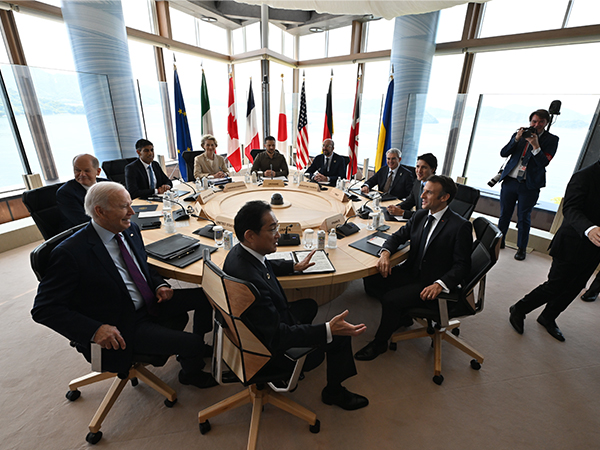
Some have voiced their disappointment that there were no results on nuclear disarmament.
Professor MINOHARA: Naturally, I understand the call for a world without nuclear weapons as an ideal worth striving toward. However, it seems too unrealistic for the world in which we live. From a bird's eye view, the world is nowhere near the stage of eliminating nuclear weapons immediately. For many nations, nuclear weapons are a matter of national interest that cannot be compromised, as they are the means to their very survival.
We must consider the concept of "pax" (meaning "peace"). "Pax" refers not to a state of no war but to a peace that emerges from the presence of an overwhelming force. When that overwhelming presence weakens, society enters an era of upheaval. For instance, the Kamakura, Muromachi, and Edo shogunates represented eras of domestic pax. However, after these eras ended, the domestic situation quickly became unstable, followed by frequent warfare. The same is true throughout world history. Spain and England each boasted an overwhelming presence, and their periods of hegemony created a state of pax.
It goes without saying that America's time as a superpower (the "Pax Americana") began in August 1945. However, the election of President Trump in 2016 is symptomatic of the American nation's pathology, a sign that it is no longer healthy. With significant domestic fragmentation, the Pax Americana is now obviously unstable.
Taken in that context, Russia's invasion of Ukraine is not a random event. It is said that history often rhymes. Many in Japan may think of the Russian invasion as a war in a distant part of Europe. However, the possibility that the war will escalate is greater than zero. That reality is palpable if we look at what drove Japan's policy of southward expansion in the late 1930s, influenced by the situation in Europe. Just as Japan and Germany once allied, China and Russia are working together today. In other words, there are ties between Europe and Asia.
Russian President Putin will likely use more radical measures if he is backed into a corner. That is because he has no future if he loses this war. From China's standpoint, its isolation would be a likely but unacceptable outcome of a Russian defeat. Thus, the reports that China has already provided smokeless powder to Russia for ammunition coincide with expectations for China expanding its support, including providing actual ammunition at some point.
Prime Minister Kishida's world without nuclear weapons may be rhetoric from a politician elected in Hiroshima, but it is unrealistic no matter how much he pushes for it. I believe that the Japanese people need to better understand the reality of the terribly complicated security situation in which Japan finds itself.
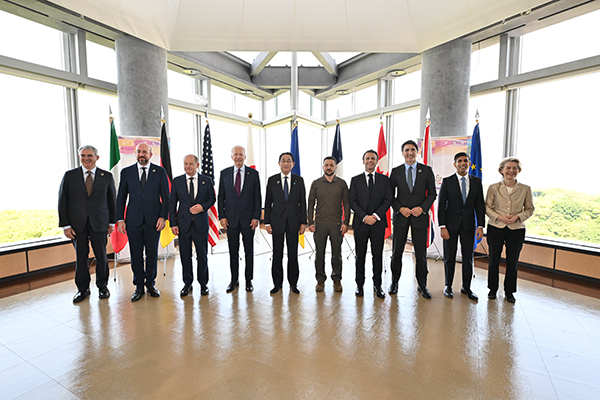
Some opinions suggest that President Zelenskyy's visit to Japan has made the summit focus solely on Ukraine instead of other topics.
Professor MINOHARA: In the current milieu, I think it would be strange for the summit not to position the situation in Ukraine as a major issue. The war in Ukraine is a war of values. Russia has violated the most foundational principle of not using force to change the status quo. Ukraine is fighting to defend the principles of democracy, liberalism, and the rule of law that we hold so dear.
If Japan were in the same position as Ukraine, it would surely appeal to the world for assistance of any kind. And since the country hosted this G7 summit, it should have presented a bolder aid package. There must be a way to provide Ukraine with equipment no longer used by the Self-Defense Forces, perhaps on the pretext of having the US "dispose" of it.
Japan would never want to see the emergence of a postwar world in which Russia has succeeded in changing the status quo. Japan has bolstered its sanctions against Russia, but they are still insufficient. I believe the focus should be on how to ensure Ukraine's independence rather than postwar relations with Russia. Tomorrow, we may find ourselves in a similar position.
Active Diplomacy Focused on BIIST
What options does Japan have in its diplomatic policy?
Professor MINOHARA: I say that we should focus on dealing with the BIIST nations. This acronym refers to Brazil, India, Indonesia, South Africa, and Turkey. Japan has built communications pipelines to some extent with these countries and should use its diplomatic influence through various channels. Also, none of these nations are predominately white. The US sometimes takes a condescending approach while appealing to its noble ideals. However, a less arrogant Japan could be more persuasive in its own way. As long as the BIIST nations continue their pro-Russian policy, economic sanctions will have limited effect, and above all, Russia will not feel isolated.
I appreciate how the leaders of Japan, the US, and South Korea stood shoulder to shoulder at the G7 summit. While it was not a major theme of this summit, cooperation among these three countries will become increasingly important. We have the Quad framework, through which Japan, the US, Australia, and India cooperate on initiatives that include national security issues. However, it also includes distributing COVID-19 vaccines and addressing global warming, so national security is not its primary focus. Moreover, despite its anti-China stance, India is pro-Russia, so it is undeniable that India has different motives for its partnership with Japan, the US, and Australia. There is also the issue of distance. India and Australia are not Japan's neighbors.
Therefore, my proposal is "Chip 4," a national security-oriented framework for producing semiconductors with Japan, the US, South Korea, and Taiwan as its members. I call it the "Inner Quad." Each relationship is complex and will take time and effort, but Japan-Korea relations are improving. These countries and regions are close to Japan and have commensurate military forces. That is why enhanced security coordination among the four countries would inevitably have a considerable deterrent effect.
Historically, Japan has not been very good at proactive responses. There is no dynamic discussion of national interests in the political arena. Japanese politicians shout "trouble for Taiwan means trouble for Japan", but without coming up with practical policies this does not actually lead to any deep considerations of what Japan could do. We must change our pattern of just creating slogans without acting on them.
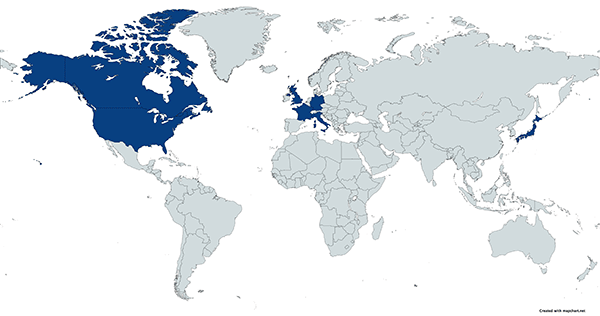
The G7 summit also focused on cooperation with the Global South, emerging and developing countries in Asia and Africa. As a leader among the countries in the Global South, India also attended the summit. Do you think this aspect was successful?
Professor MINOHARA: The media likes using the term "Global South," but it includes a great variety of countries. They range from economically developed to developing countries; geographically, they are not necessarily in the Southern Hemisphere. It is unreasonable to emphasize cooperation on the basis that they are one cohesive entity. I fear the term "Global South" will gain traction, creating a pseudo-solidarity among these nations.
Taking the Association of Southeast Asian Nations (ASEAN) as an example, the group includes maritime and landlocked nations. The maritime ones with oceans are under more severe threat from China. The "Global South" designation is even larger than the ASEAN framework. We must be more aware of the differences among the individual nations included within and avoid lumping them together. What is crucial is a proactive approach to countries that share the same objectives as Japan.
The Importance of Looking a Decade Ahead and Having a Bird's Eye View of the Globe
Some point to the declining influence of the G7. Will the forum still have value in the future?
Professor MINOHARA: I think the G7 has a significant role to play because the UN Security Council is not functioning at all. Conversely, the G20, which used to attract more attention than the G7, now has too many member countries and lacks cohesion. Since we are facing a war with Russia, a world power, in a primary role, the G7 countries are likely to work toward building a better postwar world in consideration of liberalism's future rather than their own narrow national interests. Moreover, should Mr. Trump win the US presidential election next year, the other six countries must join forces to keep the US together. It is the only nation with the option to turn its back on the rest of the world in favor of isolationism.
When I saw the G7 leaders laying flowers at the memorial in Hiroshima, I felt a great sense of anxiety: "Next year, we may no longer be in this situation." I pictured the leaders of seven nations gathered together in the hope of peace, united in strength to respond to emergencies in the coming year and beyond, fighting shoulder to shoulder for the survival of democracy.
That is because the end of the war in Ukraine is not yet in sight. Three main scenarios are possible going forward. Ukraine will win, Russia will win, or there will be a stalemate in the form of a ceasefire like the Korean War. The scenario in which Ukraine wins could include Russia collapsing from within or the US or the North Atlantic Treaty Organization (NATO) intervening. Naturally, there are several possible derivations of each of these three scenarios. The significant variable is how China moves. If China intervenes more directly, the US would have to respond, fueling a run to the top of the escalation ladder.
The 1917 model (the year of the US entering WWI and the Russian Revolution) is crucial to this war. I think the war will only reach a resolution with American intervention, not with an internal collapse through revolution. US public opinion has not yet reached the level of 1917, so intervention is not imminent. However, the situation in Ukraine could change at any moment, and Japan must be prepared to respond.
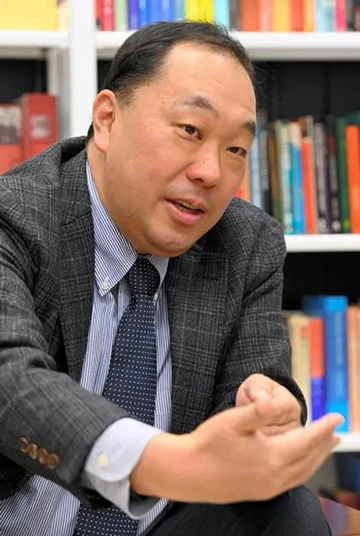
I understand you attended a NATO-related meeting in June. NATO has also moved to open its first Asian field office in Japan. How do you view the global situation in light of these moves?
Professor MINOHARA: Countries exhibit considerable and noticeable changes when viewed over decades. When I was a graduate student in the 1990s, my peers often laughed at me when I claimed that China was a threat to Japan or that India would become a strategically and geopolitically important country. However, in 2010, China overtook Japan in terms of GDP, and India surpassed the GDP of its former sovereign, the United Kingdom. India also surpassed China in terms of population. Amid the escalating US-China conflict, it is apparent that India's strategic importance to the US has increased dramatically.
Thirty years ago, many people did not see these changes coming and thought Japan would eventually become a world leader. In fact, during my college years in the US, political science and economics professors often complained about the threat Japan posed. I often argued with them that Japan could not possibly overtake the US. I believe this argument about Japan's threat finally disappeared after the Great Hanshin-Awaji Earthquake and the Aum Shinrikyo sarin gas attack in 1995.
As in the business world, we must look a decade ahead in international politics. History is a tool for this purpose. We look to the future through dialogue between the past and the present. In light of such an analysis, I cannot imagine an optimistic scenario for a decade from now. Japan's influence as a nation will be even weaker than it is today, and more importantly, the US will be in gradual decline due to domestic fragmentation.
The US used to be tolerant. However, it no longer has room for tolerance. The US may become even more inward-looking and lose interest in the rest of the world. Suppose Mr. Trump returns to the presidency and takes the stance that the Ukraine issue is someone else's business. In that case, we are in for a frightening time.
There will surely come a time when Europe and Japan need each other in terms of security. We can imagine a situation in which both sides join hands to encourage the US to do the same. Alternatively, when the US turns its back on us, Europe and Japan will inevitably work together. NATO is the framework that keeps the US tied to security in Europe, and the Northeast Asian version of NATO is the Japan-US alliance. Therefore, linking NATO and Japan would doubly entangle the US. We tend to focus on China and Russia now, but it is equally important to follow developments in the United States.
Naturally, whatever happens in Europe impacts Asia and vice versa. The Tripartite Pact once brought together Japan, Germany, and Italy, and now a new triple alliance of China, Russia, and Iran has emerged. In other words, Asia, Europe, and the Middle East are connected. Therefore, I think it will become increasingly important to look at the world from a global perspective, including trends in the US, rather than myopically viewing the Ukraine issue as a European problem. Thus, I teach my students with this macro perspective in mind.
Resume
| December 1992 | Graduated from the University of California, Davis, with a bachelor's degree in international relations |
| January 1993 | Hired by US-based Union Bank |
| March 1996 | Graduated from Kobe University with a master's degree in political science |
| March 1998 | Graduated from Kobe University with a Ph.D. in political science |
| April 1998 | Became a research fellow of the Japan Society for the Promotion of Science |
| April 1999 | Appointed associate professor at the Faculty of Law, Kobe University |
| April 2000 | Appointed associate professor at the Graduate School of Law, Kobe University |
| April 2007 | Appointed professor at the Graduate School of Law, Kobe University |
| April 2016 | Appointed senior advisor at Kreab Limited |
| April 2019 | Appointed chairman of the NPO, Research Institute for Indo-Pacific Affairs (RIIPA) |






